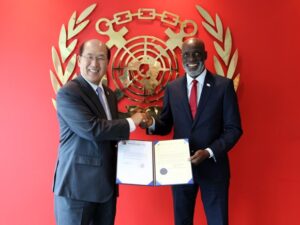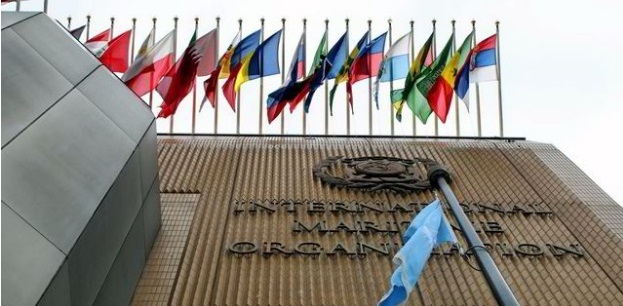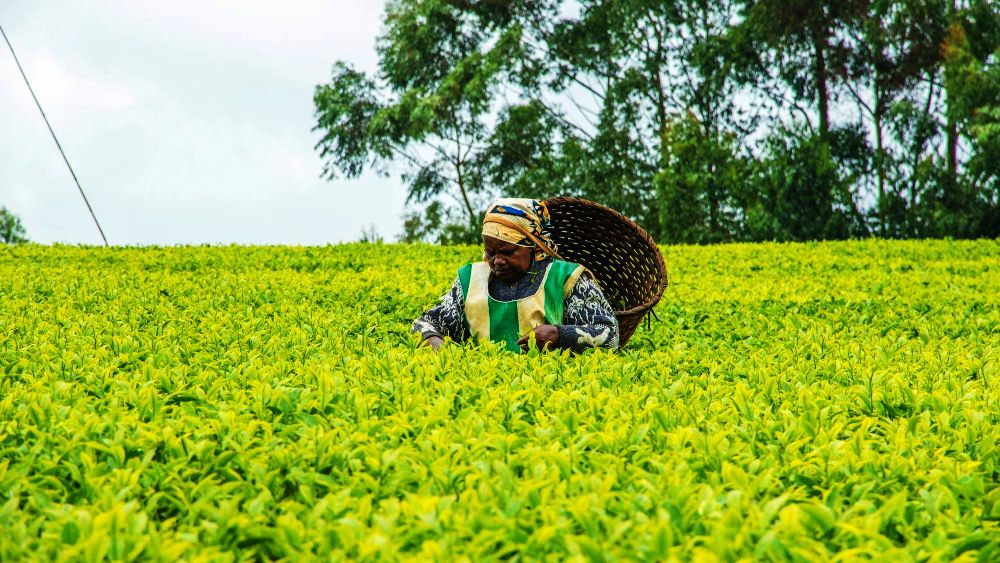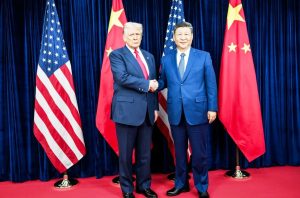Many International Maritime Organization member states could view the tough intermediary targets as unworkable. PHOTO/IMO/Flickr
By MARITIME CORRESPONDENT
The International Maritime Organization is gearing up for historic decisions next week that could see the UN shipping regulator adopt a zero-carbon or net zero emissions target.
However, Tradewinds reports that as consensus builds towards adopting a more ambitious strategy at the close of the Marine Environment Protection Committee (MEPC) next week, IMO delegations remained divided on the timeline for adopting the so-called midterm policy measures that could include a carbon levy or similar mechanism to tax emissions.
Discussions over what to do next will be crucial as the US, European Union, UK and others urge the MEPC to adopt interim targets next week that aim to slash greenhouse gas emissions by 37 percent in 2030 and by 96 percent in 2040.
Tense negotiations begin at IMO working group to determine shipping’s decarbonisation goals with China, Brazil, Argentina and other developing countries coming out strongly against a carbon levy as a market-based measure.
Meanwhile, the Hong Kong International Convention for the Safe and Environmentally Sound Recycling of Ships (the Hong Kong Convention) is set to enter into force within 24 months, after Bangladesh and Liberia became Contracting States to the Convention.
The Hong Kong Convention is aimed at ensuring that ships, when being recycled after reaching the end of their operational lives, do not pose any unnecessary risks to human health, safety and to the environment.
The Hong Kong Convention will enter into force 24 months after the following required criteria have been met: not less than 15 States; not less than 40% of the world’s merchant shipping by gross tonnage; and ship recycling capacity of not less than 3% of the gross tonnage of the combined merchant shipping of those States mentioned above.
These conditions have now been met and the Convention will enter into force on 26 June 2025. Bangladesh is one of the world’s largest ship recycling countries by capacity. Liberia is one of the world’s largest flag States by tonnage.
Ms. Saida Muna Tasneem, High Commissioner, Permanent Representative of Bangladesh to the IMO, deposited the instrument of accession with IMO Secretary-General Kitack Lim on 26 June 2023, at IMO Headquarters in London.
“The Government of Prime Minister Sheikh Hasina has once again demonstrated Bangladesh’s global leadership and commitment as a major ship recycling country to environmentally safe and sustainable ship recycling by acceding to the Hong Kong Convention,” Ms Tasneem said.
She thanked the IMO Secretary General Kitack Lim and his team, the Government of Norway and other international organizations for their continued support to Bangladesh’s ship recycling industry.
Mr Lenn Eugene Nagbe, Commissioner and CEO of the Liberia Maritime Authority, deposited the instrument of accession with IMO Secretary-General Lim. As one of the largest flag State, Liberia’s accession has enabled the tonnage criteria to be met.
“As a preeminent partner in global maritime affairs, Liberia takes its vested responsibility to ensuring safe and environmentally responsible practices throughout the industry by the enactment and adherence to laws and regulations to help guide maritime activities,” Mr Nagbe said.

Bangladesh and Liberia trigger entry into force of Convention for the Safe and Environmentally Sound Recycling of Ships. PHOTO/IMO
He said as a major flag State, the coming into force of the new convention will enable Liberia’s national regulatory framework to work for the benefit of the maritime industry and open opportunities for additional investments into responsible ship recycling, globally and in Liberia.
Secretary-General Kitack Lim commended Bangladesh and Liberia for their accessions to the Hong Kong Convention for the Safe and Environmentally Sound Recycling of Ships.
“I congratulate Bangladesh and Liberia for depositing their instruments of accession this June, triggering within 24 months the entry into force of the Hong Kong Convention, and the global regime for safe and environmentally sound recycling of ships,” Mr Lim said.
He described the occasion as a momentous day for IMO, and a historical development for the international shipping industry, for the marine environment, and especially for workers and local communities in ship recycling countries globally.
“Bangladesh as a major ship-recycling country, has made huge strides in recent years in improving its ship recycling regulation and standards to meet the Hong Kong Convention requirements. My sincere thanks to the Government of Bangladesh for this timely decision of accession,”. Secretary General Mr. Lim said.
He thanked the Government of Norway for their continued support to the IMO-implemented project on Safe and Environmentally Sound Ship Recycling in Bangladesh (SENSREC), which he said has helped to make the accession possible.
“I would also like to express my deepest appreciation to Liberia. As a prominent flag state, their accession to the Hong Kong Convention will provide a major advancement to Liberia’s regulatory framework and would enable the tonnage criteria to be met,” Mr. Lim said.
He invited other Member States, who have not yet become a party to the Hong Kong Convention, to do so as soon as possible.
The Hong Kong Convention was adopted at a diplomatic conference held in Hong Kong, China, in 2009. It is aimed at ensuring that ships, when being recycled after reaching the end of their operational lives, do not pose any unnecessary risks to human health, safety and to the environment.
The Convention places responsibilities and obligations on all parties concerned – including shipowners, ship building yards, ship recycling facilities, flag States, port States, recycling States.
The Hong Kong Convention now has the following contracting parties: Bangladesh, Belgium, Republic of the Congo, Croatia, Denmark, Estonia, France, Germany, Ghana, India, Japan, Liberia, Luxembourg, Malta, Kingdom of the Netherlands, Norway, Panama, Portugal, São Tomé and Príncipe, Serbia, Spain, Türkiye.
The 22 Contracting States to the Convention represent approximately 45.81% of the gross tonnage of the world’s merchant shipping. The combined annual ship recycling volume of the Contracting States during the preceding 10 years amounts to 23,848,453 gross tonnage, equivalent to 3.31% of the required recycling volume.


















